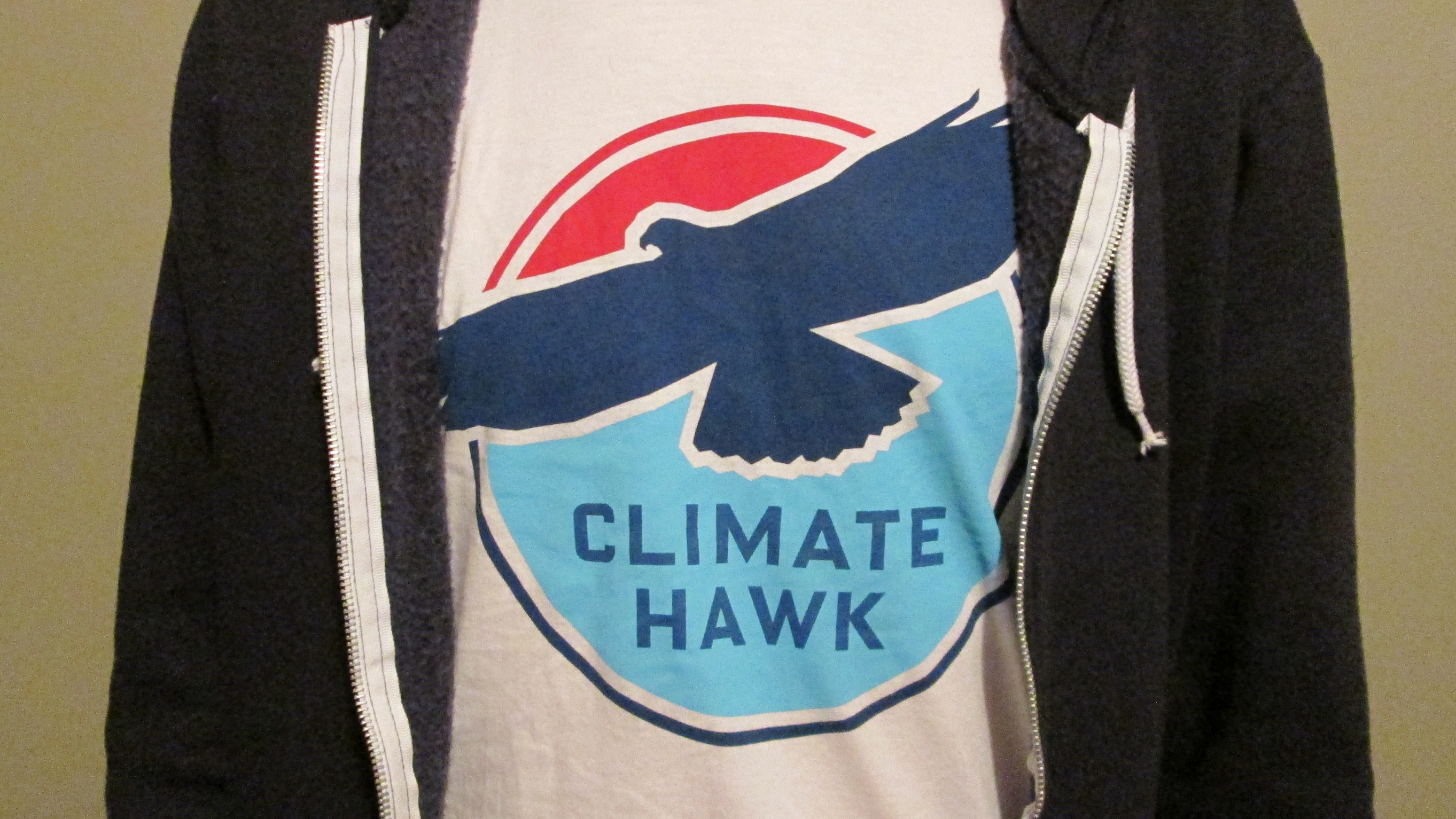A realization has been gradually dawning on climate change activists: Too many Democrats vote the right way on their issues but never lead on them. Yet every big legislative victory requires lawmakers who will publicly argue for an issue and aggressively push legislation.
And so activists have started launching political action committees (PACs) to identify and aid candidates who will be outspoken, active climate leaders. In California, the new state-level PAC Leadership for a Clean Economy endorsed its first two State Assembly candidates earlier this year. And now a national counterpart, Climate Hawks Vote, has gotten going as well, starting to build support for climate leaders in congressional races. (Tom Steyer’s NextGen Climate Action super PAC is also aiming to influence elections, but it’s mostly focused on knocking out bad actors rather than finding and supporting good ones.)
Last Thursday, the Climate Hawks super PAC announced its first endorsements: Hawaii Sen. Brian Schatz (D), who is facing a primary challenge from Rep. Colleen Hanabusa, and Stanley Chang (D), a Honolulu city councilman running to replace Hanabusa in the House of Representatives. Climate Hawks has hired two field organizers in Hawaii to knock on Democratic voters’ doors and raise awareness about Schatz’s and Chang’s environmental credentials. (As a super PAC, Climate Hawks can endorse candidates and run ads and “education campaigns,” but it cannot donate directly to a candidate or coordinate with his or her campaign.)
Schatz has already proven himself a leader on climate policy in the Senate. As for Chang, Climate Hawks Vote is impressed by his eagerness to talk about the issue. “Chang has a really, really sound grasp of climate politics and policy,” says R.L. Miller, cofounder and executive director of Climate Hawks Vote. “Compare his website to [Democratic primary opponent Mark] Takai, who only talks about clean energy but not climate. That’s a big tell if you stick your neck out to talk about climate rather than just clean energy.”
Climate Hawks was borne of Miller’s frustration with Democrats’ timidity on climate change. “In 2013, I was noticing a pattern,” recalls Miller, a lawyer and longtime Democratic activist and liberal blogger (sometimes for Grist). “Republicans were writing a lot of message bills saying ‘Gut the EPA, raze it to the ground, salt the Earth where it once stood.’ Democrats were strictly playing defense. They were unified in voting these down but not pushing an agenda forward.” Moreover, Democrats from states with large fossil-fuel industries often side with Republicans on energy policy.
“[Former Montana Gov.] Brian Schweitzer was considering running for Senate, and in my mind he was unacceptable because he pushes coal as a solution,” says Miller. “I thought, ‘The Democrats are united on things like reproductive rights but not on the future of coal, and we need to unite on that and we need to make [support for coal] unacceptable.’ So I decided I would push the Democratic Party to the left.”
Broad measures of legislators’ voting records, like the League of Conservation Voters’ scorecard, capture people’s positions but not their level of intensity or engagement. Climate Hawks Vote wants to “look at leadership, not just votes,” says Miller. “For example, [Sen.] Amy Klobuchar [D-Minn.] is a popular Democrat with a high LCV rating. I pulled her up randomly, and compared her with Sheldon Whitehouse [D-R.I.], who is our gold standard in the Senate. The last time she mentioned climate, at the time I did this, was in 2008. A lightbulb went off in my head: We’re trusting them to vote as a bloc but they’re not leading on this issue. We need to measure public engagement.” (Klobuchar has since spoken about climate change, including participating in the Senate’s recent all-night talkathon on the issue, and Miller hastens to note that she could have performed the same analysis with many liberal Democratic senators and gotten the same result.)
So Miller created a scoring system to measure climate leadership. The outcome, painstakingly compiled over six months, is the Climate Hawks scorecard for each Democratic House member. The scores are based on “public engagement,” bills authored or cosponsored (the former earning more points than the latter), press releases, working caucuses joined and led, and statements on websites. Possible scores go from -100 to +100, with Rep. Henry Waxman (Calif.) scoring the highest at +96 and Nick Rahall (W.Va.) the lowest at -66. The need to promote climate leaders is especially pronounced now that Waxman is retiring, as is Rush Holt of New Jersey, who tied for second place at +76.
One hope is that climate-minded voters and donors will use these rankings and act on them. But Miller also intends to use them to guide Climate Hawks’ strategic decisions. In some cases, that might lead to unexpected results. “[Rep.] Scott Peters in San Diego scored extremely high [+74] on my scorecard,” notes Miller. “I was surprised, because he has a no-labels, third-way, centrist reputation.” So Climate Hawks is considering backing him in his close reelection race this year.
Miller is now working on rankings for Senate Democrats, and will use them to guide further involvement in Senate races. Mark Udall of Colorado, for example, is locked in a tight reelection fight against a right-wing Republican. Udall is generally viewed as a climate hawk and supported by environmentalists. But Miller says she cannot commit to getting involved until she’s crunched the numbers. “I think Tom Udall [Mark’s cousin, a senator from New Mexico] has a better record than Mark Udall,” says Miller. “I’d like to see how Mark Udall scores.”
One big difference between Climate Hawks and Leadership for a Clean Economy is that the latter group focuses heavily on interviews and written responses from candidates in making its endorsements, while Climate Hawks focuses solely on public actions and statements. “We made a specific decision not to do questionnaires because people promise you everything, and if it’s not made public there’s not accountability,” says Miller. “We’re trying emphatically to look at what a candidate says in public.”
The Climate Hawks Vote website has only been live a little more than a month, and the group hasn’t started actively fundraising yet. So far it has raised about $6,000 from Twitter followers and Facebook friends “without really trying,” Miller says, and it expects to raise $10,000 by the end of this month. The more the group can raise this year, the more field organizers it will put on the ground. “2014 is basically a pilot program,” Miller says. The super PAC plans to expand for 2015-16 and beyond.
Having more Democratic lawmakers who make public pronouncements on climate change and push climate bills won’t help move today’s Republican caucus to support action. In fact, it may just polarize the issue further. But the status quo isn’t working either, and Miller thinks it’s time for a change in strategy. There were times in American history when the chances for civil rights or universal health insurance looked just as grim. It took leaders, not just passive supporters, to make those goals into laws, and the climate will need leaders too.




